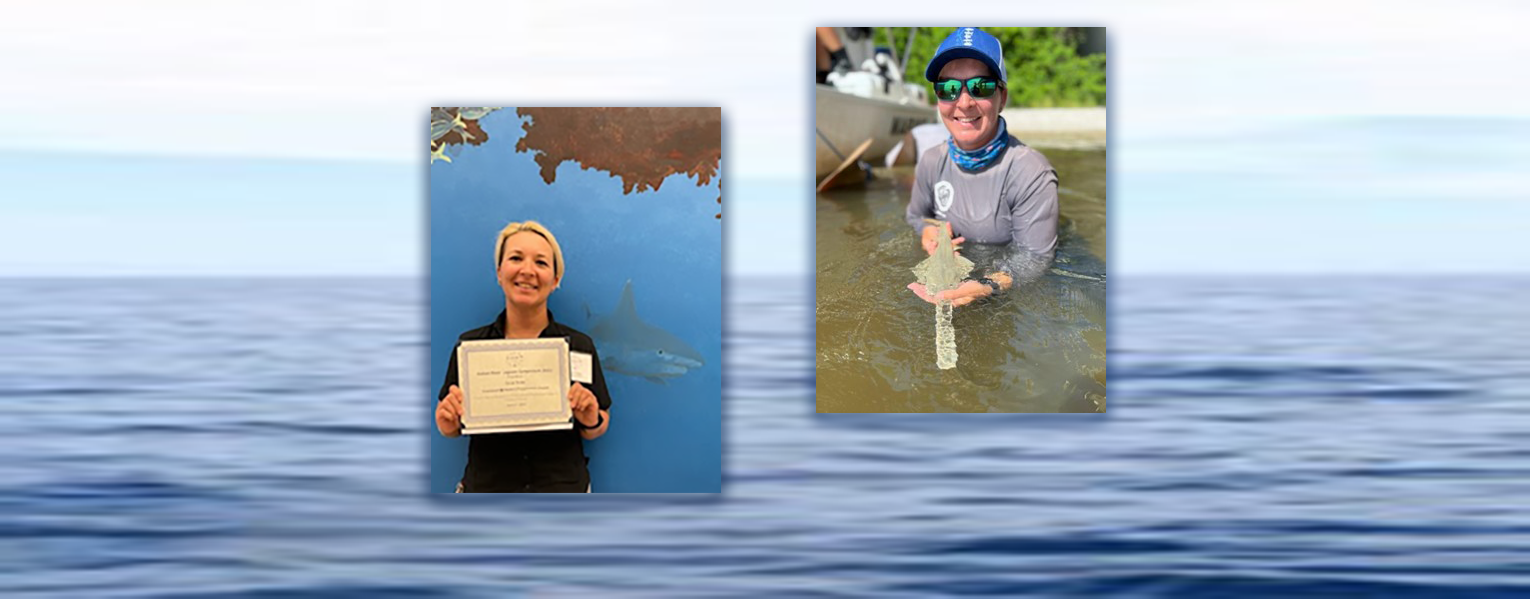10/31/2022
Tracking Fish for Conservation
FAU Graduate Student Studies Fish in the Indian River Lagoon
By Bethany Augliere
As a doctoral student at the FAU Harbor Branch Oceanographic Institute, Sarah Webb researches how environmental changes can impact fish. The goal of her results could influence catch limits as well as water management issues involving discharges.
In the meantime, Webb’s dedication recently earned her two awards:
- The Paul Dritenbas Memorial Scholarship Award from the Sunrise Rotary Vero Beach for her contribution to conservation of the Indian River Lagoon (IRL).
- Outstanding Student Presentation Award at the 2022 Indian River Lagoon Symposium hosted by FAU Harbor Branch.
Under the guidance of Matthew Ajemian, Ph.D., associate research professor, Webb’s focuses on several species of fish, including the spotted seatrout, sheepshead and juvenile Goliath grouper, in the southern portion of the IRL and the St. Lucie River. She’s tracking the fish to understand their movement patterns, and how this differs with changes in temperature, salinity and other environmental factors.
“This project is important, especially locally, because the vast urbanization and Lake Okeechobee freshwater discharges have impacted and changed the habitats available to various fish species,” Webb said. “The results from this project could hopefully be used to inform management decisions on species catch limits as well as water management issues involving Lake Okeechobee discharges.”
Webb said her love for the ocean began as a child, during family vacations to the Caribbean where she learned to snorkel. After high school, she earned a bachelor’s degree in biology and environmental studies from Chaminade University of Honolulu in 2011, and then a master’s degree in marine sciences from Savannah State University in 2016.
After working for the Georgia Conservancy and Georgia Department of Natural Resources, Coastal Resource Division, she moved to Florida in 2018 to begin working at the Florida Fish and Wildlife Conservation Commission (FWC) Tequesta Lab. She officially started the doctoral program at FAU Harbor Branch in 2021, in collaboration with her job at FWC.
When she’s not conducting research, she said she likes to be outside paddleboarding or scuba diving, attending NHL games (rooting for the Penguins), and enjoying the company of her two dogs.
“Being a marine biologist is the only job I knew I wanted when I was younger,” Webb said. “I am so thankful for the path my life and career has taken me thus far.”
If you would like more information, please contact us at dorcommunications@fau.edu.
Juvenile Goliath Grouper, tagged and released within the southern IRL as part of an ongoing study to identify ontogenetic shifts in habitat use, as well as identify changes in distribution or movement patterns in response to environmental fluctuations.
Pre-dive to swap out acoustic receivers for regular maintenance. The receiver records the coded signal sent out by the tags implanted into fish for projects answering questions about habitat use, migration patterns, spawning aggregations, responses to environmental fluctuations, and more.
